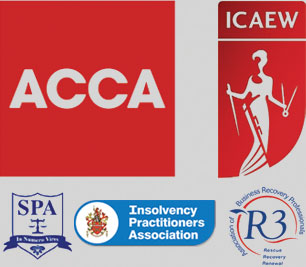The best chance of survival for a company in financial difficulty is often to take early professional advice and consider all the options available. The type of insolvency process used will be influenced by many factors, including the size and structure of the company, the nature of its business, its financial position and the wishes of its directors.
Our team of corporate insolvency practitioners has a wealth of experience in advising companies and their directors on the full range of insolvency options, including:
Closure Options for Insolvent Companies
There are two main types of closure options for insolvent companies – voluntary and compulsory.
Voluntary Liquidation
This is when the directors of an insolvent company decide to close it down voluntarily. They may do this because they think it is the best thing for the company, or because they have no choice (for example, if the company has no money to pay its debts).
Compulsory Liquidation
This is when the company is closed down by the courts. This can happen if the directors do not agree to voluntary liquidation, or if a creditor (someone the company owes money to) applies to the court for an order to wind up the company.
Closure Options for Solvent Companies
If you want to shut your solvent company down, there are two primary methods to do so. A number of reasons may lead to the closing of a solvent business, including owner retirement, changing market circumstances, and the desire by corporate directors to pursue other business interests.
Members’ Voluntary Liquidation
So even if a company is a solvent (that is, it can pay its debts as they fall due), there may be reasons why the directors might want to close it down. For example, the company may have reached the end of its life cycle, or the directors may want to retire.
In these cases, the directors can choose to put the company into ‘Members’ Voluntary Liquidation’ (MVL). This is a process whereby the company is wound up voluntarily, but only if the directors are sure that all the company’s creditors will be paid in full.
Company Strike Off
If you want to close your company but don’t want to go through the process of liquidation, you can apply to have it ‘struck off’ the register at Companies House. This is usually only an option for very small companies that owe no money to anyone.
The first step in any decision to close a company is to seek professional advice from a corporate insolvency practitioner. They will be able to advise you on the best course of action for your company, based on its individual circumstances.
Company Rescue Options for Companies in
If your company is in financial difficulty, there are a number of options available that may be able to help it to survive. These include:
- Company Administration
- Company Voluntary Arrangement
These options can be complex, so it is important to seek professional advice from a corporate insolvency practitioner before making any decisions.
Company Administration
When a company is placed into administration, it receives the time and legal protection while an administrator – who must be a licensed insolvency practitioner – is assigned to take control of the company in order to negotiate the best outcome for business creditors. A company can exit administration in a variety of ways, including through a business sale, an alternative bankruptcy procedure such as a company voluntary arrangement, or a management buy-out.
Company Voluntary Arrangement
A Company Voluntary Arrangement (CVA) is a formal agreement between a company and its creditors to pay off its debts over time. It can be used to rescue a company that is in financial difficulty and allows it to continue trading while it repays its debts.
These are just some of the options available to companies in financial difficulty. If your company is facing difficulties, it is important to seek professional advice from a corporate insolvency practitioner to find out what options are available to you.
The right insolvency process will depend on the specific circumstances of your company and our corporate insolvency practitioners can advise you on the best course of action. We will also work with you to try and maximise the chances of saving your business and protecting your personal assets. If you are facing financial difficulties, please contact us today to arrange a free initial consultation with our licensed insolvency practitioners.


Follow Us!